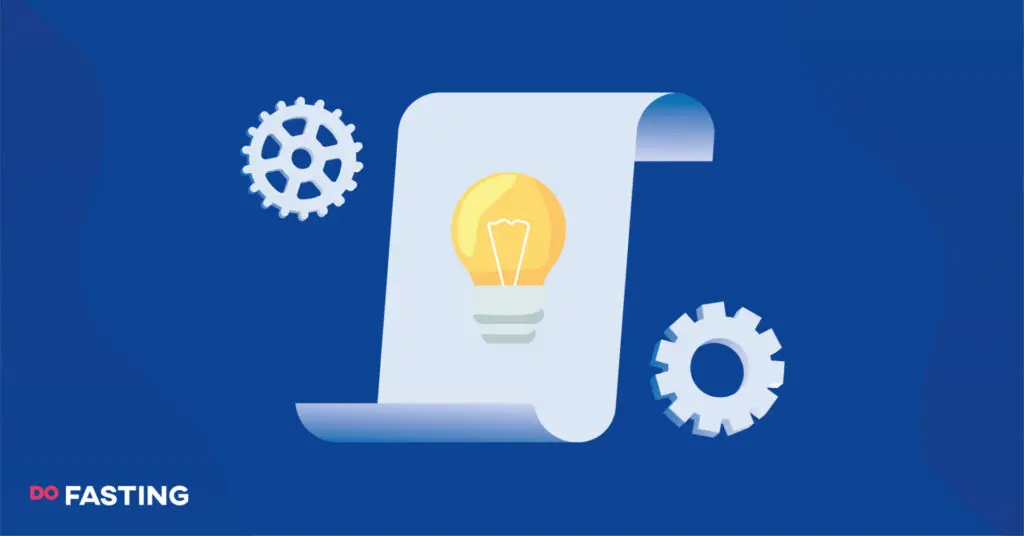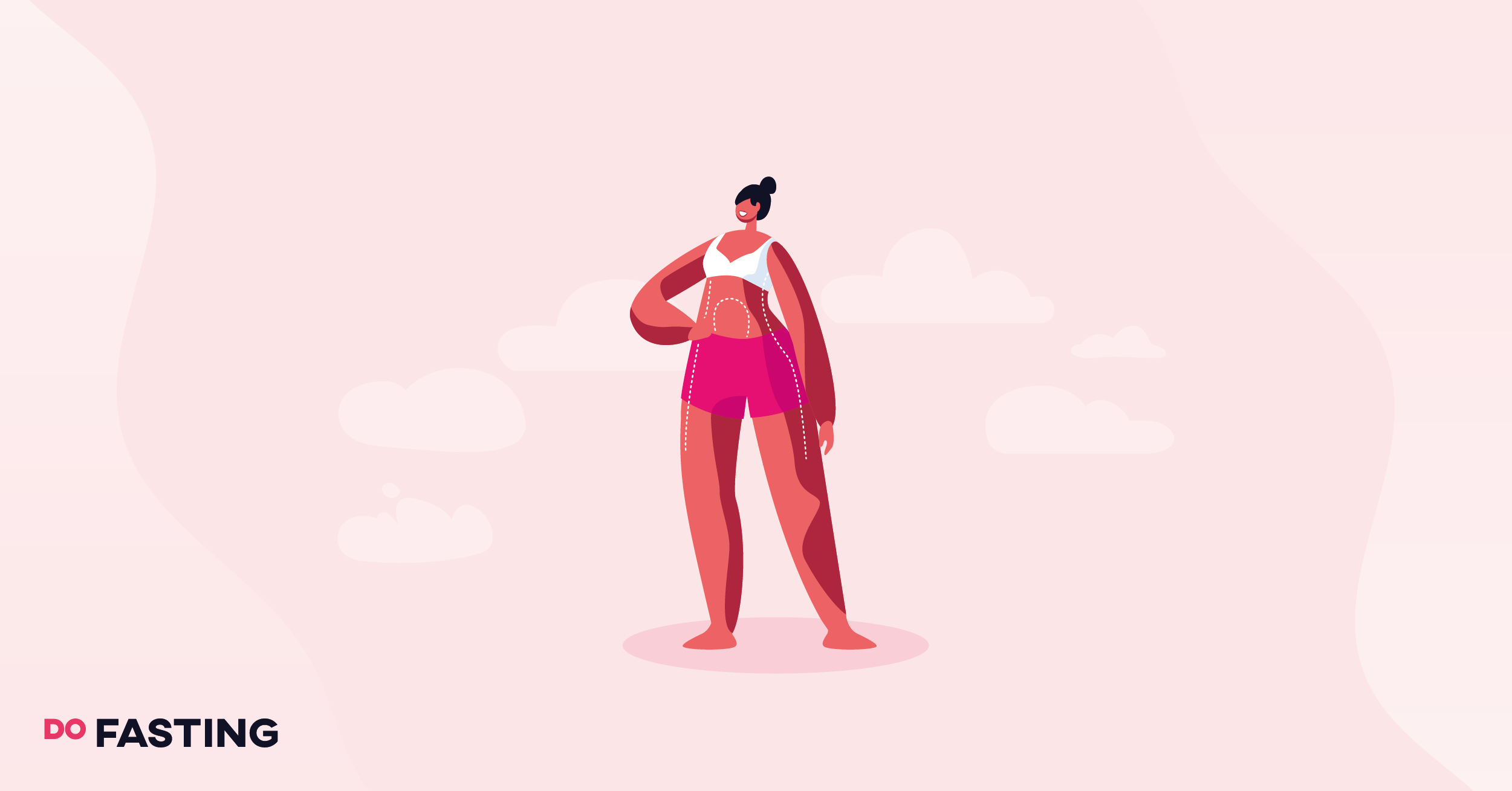Contents
Does Taking Medication Break Intermittent Fasting?
When you fast, your body runs out of sugar to burn for energy. With an empty stomach, your body will burn fat – known as metabolic switching. Several different diets can trigger metabolic switching, including calorie restrictions.
When you break your fast – resume eating food – your body will stop burning stored fat and survive on your calorie intake. Any food or medicine that triggers an insulin response may break your fast.
Whether medication breaks intermittent fasting (IF) depends on the type of fast and medication. For instance, taking over-the-counter medication during your eating window may not impact your diet.
So, how can fasting impact your medication regimen?
- Fasting effects on drug metabolism variations appear small, but studies are inconclusive.
- Blood pressure and heart disease medications taken during fasting periods may increase drug side effects.
Take a
1-minute quiz
and discover how much weight you can lose with DoFasting!

Ingredients you should watch out for
You should watch out for specific ingredients in medicines and supplements that may break your fast:
- Branched-chain amino acids: Although often advertised as calorie-free, they contain leucine that ends fasting.
- Glucose: Drugs that increase blood sugar will break a fast as the body will burn glucose before fat.
Medications That Are Safe to Take During the Fasting Window
Some medicines will not affect your intermittent fasting diet. Generally speaking, medicines with zero calories and minimal side effects are relatively safe.
Water-soluble vitamins, thyroid medications, digoxin, and l-tyrosine are all likely safe to take while on fasting diets. You should always check the label and speak to a doctor if you’re unsure.
Water-soluble vitamins
The body flushes water-soluble vitamins, such as vitamins B and C out. You will mainly find water-soluble vitamins in vegetables, fruits, dairy, meat, liver, and eggs.
Unlike fat-soluble vitamins, your body cannot easily retain water-soluble vitamins. You need water to absorb them. Therefore, they are likely okay (and even more beneficial) to take on an empty stomach. Your body can metabolize them more quickly.
However, you may experience side effects:
- Digestive issues
- Stomach pains
- Nausea
Avoid taking water-soluble vitamins during fasting if they make you uncomfortable.
Thyroid medications
Thyroid medication (e.g., levothyroxine) treats hypothyroidism – an underactive thyroid that doesn’t produce enough hormone. It replaces missing thyroid glands that help control energy levels and growth. Experts suggest you take thyroid medication on an empty stomach and avoid eating or drinking immediately afterward.
Digoxin
Digoxin treats various heart conditions, namely irregular heartbeats. It slows your heart rate and helps your heart chambers fill with blood. You can take digoxin with or without food, as long as you take it at the same time each day.
L-tyrosine
L-tyrosine is a non-essential amino acid that helps brain function and hair and skin health, among other health benefits. Research also suggests that l-tyrosine affects mood and stress by assisting organs in regulating hormones. You can take l-tyrosine on an empty stomach and wait at least 30 minutes before breaking a fast.
The Essential Fiber Complex
DoFasting’s appetite suppressant – or the Essential Fiber Complex – is a supplement containing glucomannan and cellulose that will not break your fast during the fasting window.
This supplement is designed to keep your cravings at bay throughout the fasting window. This supplement makes you feel full without breaking your fast and helps you achieve your weight loss goal.
Medicines That Don’t Break the Fast but Can Upset the Stomach
Not all medicines that make you unwell on an empty stomach will break your fast. For instance, antibiotics and painkillers may damage your stomach lining. You may wish to avoid drugs that make you feel uncomfortable when fasting. Remember to speak to your doctor before starting new medication while fasting.
Most antibiotics
Antibiotics fight bacterial infections. There are many strains that help your immune system by killing or blocking bacteria and preventing them from multiplying. Each strain works differently.
You can take some antibiotics during the fasting window without adverse effects, such as tetracycline. However, consult your medical provider as you must take some antibiotics, such as amoxicillin and doxycycline, with food.
Most antibiotics don’t contain any caloric value, so they are safe to take while fasting without increasing blood sugar levels. However, you may experience stomach upset if you take some antibiotics on an empty stomach. It occurs because antibiotics can also affect the good bacteria in your gut.
It’s best to talk to your doctor about taking antibiotics while fasting and avoid discomfort.
Fat-soluble vitamins
The body absorbs fat-soluble vitamins, such as vitamins A, D, E, and K, into your blood more easily when eaten with fatty foods – therefore, you should try to eat them with food. Fat-soluble vitamins lower the risk of heart disease, improve bone health, and strengthen the immune system.
Without fatty foods, your digestive system will struggle to process the vitamins and may cause stomach upset.
Most over-the-counter medications
Over-the-counter medications like painkillers (aspirin, ibuprofen, and paracetamol), antihistamines, and iron supplements, treat a range of minor medical conditions.
Taking drugs like aspirin and ibuprofen with meals is best as they can cause significant stomach issues. In a worst-case scenario, you may suffer internal bleeding in your intestines or stomach lining.
Take a
1-minute quiz
and discover how much weight you can lose with DoFasting!

Medications That Break Your Fast
Not all drugs are compatible with an intermittent fasting diet. Be careful of taking the following medications outside your eating window. They can stall your weight loss journey.
BCAA supplements
Branched-chain amino acids (BCAAs) include three essential amino acids:
- Leucine
- Isoleucine
- Valine
They boost muscle growth and enhance performance during exercise. However, taking BCAA supplements during fasting may cause an insulin spike. While eating normally, your body will process BCAA without affecting insulin levels as they contain barely any glucose.
Yet, while fasting, you have more insulin sensitivity. Therefore, the small amount of glucose in amino acids may cause your blood sugar levels to rise. Your body will use the sugar for energy rather than burning fat stores and interrupting your fasted state.
We still need more research to conclusively answer how amino acids affect blood sugar and insulin levels during fasting periods.
Gummy multivitamins
Multivitamins combine vitamins and minerals into one supplement. Vitamins and minerals support overall body performance, such as brain power, immunity, and energy levels. Gummy multivitamins come as chewy, sugary tablets that are easy to swallow.
However, the sugar in gummy multivitamins can break a fast. Gummy multivitamins contain 2–8g of sugar. If you eat these while fasting, your body might produce too much insulin and prevent fat burning, which can disrupt weight loss journeys.
Protein powders
Many people take protein powder to build muscle and improve athletic performance. Despite the promising labels of zero calories, most protein shakes contain a few calories that break a fast.
If you’re trying to lose weight, check the label of your protein powder. Even if taken during eating hours, it may contain up to 30g of added sugar.
Medications That Are Not Safe to Take During Fasting
There are some medicines you should not take while fasting. It’s best to speak to your doctor before fasting while on any of the following medications.
Corticosteroids
Corticosteroids are used in a range of different treatments, such as:
- Treating asthma exacerbating
- In combination with cancer medications
- Autoimmune diseases
Steroids can upset your stomach lining if taken on an empty stomach and cause internal bleeding. Consult a doctor if you’re taking steroids during a fasting window.
Heart medications
Heart medications treat various heart-related conditions, from heart failure to blood clotting. Examples include:
- Apixaban
- Dabigatran
- Edoxaban
- Heparin
- Rivaroxaban
- Warfarin
Some heart medications thin the blood. This can help prevent heart attacks and other cardiovascular problems. However, when you change your diet, it can mean an increased risk of side effects. Plus, there are some food groups you should avoid. Speak to your doctor before starting any intermittent fasting methods while on heart medication.
Blood pressure pills
There are plenty of drugs that treat high blood pressure, such as beta-blockers or diuretics. Most blood pressure medications reduce the volume of liquid running through your blood vessels (e.g., by removing excess water).
You can take some blood pressure medication (Amlodipine and Atorvastatin) with or without food. However, it’s best to speak to a medical professional before fasting. Your doctor may prescribe a specific diet while taking blood pressure pills.
Diabetes medications
People with diabetes lack insulin or are deficient. People with type 1 diabetes stop producing insulin. Type 2 may not make enough or may be insulin resistant. Insulin is necessary to process sugar.
If you fast while on diabetes medication, it may lead to low blood sugar (hypoglycemic levels) – known as hypo. You might feel dizzy, faint, or irritable and have heart palpitations.
Speak to a healthcare professional to ensure you fast safely while on diabetes medications.
Take a
1-minute quiz
and discover how much weight you can lose with DoFasting!

Conclusion
Intermittent fasting is an excellent, healthy lifestyle that will lower blood sugar and help you lose fat.
However, if you’re taking medication, consult a medical professional about whether it is safe to fast. Diabetes medication and blood pressure pills may have serious side effects.
To get the most out of your fasting, only try taking medication as prescribed by a healthcare professional.
See how DoFasting will improve your life
Find out what works for you with this 60-sec quiz approved by our experts and get your personal revolutionary fasting assistant.
Start the Quiz














